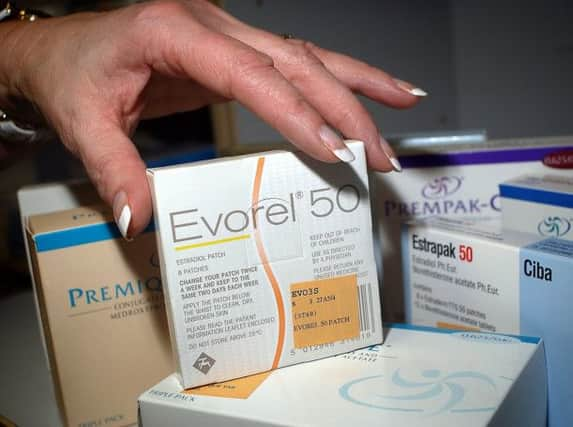Hormone pills ‘may increase risk of stroke’


Overall, the analysis showed oral HRT does not protect against heart disease and may increase the risk of stroke.
But data from a group of younger women more representative of the majority of patients found a reduced risk of death from any cause and heart disease linked to the treatment, even though the likelihood of blood clots was slightly raised.
Advertisement
Hide AdAdvertisement
Hide AdThe review looked at almost 4,000 studies from around the world involving some 40,000 women. About 9,000 women formed a group who were prescribed the treatment at, or not long after, the menopause.
Lead researcher Henry Boardman, of Oxford University, said: “When we looked at the results according to the age of women, or by how long since their menopause that they started treatment, we found that if 1,000 women under 60 years old started hormone therapy we would expect six fewer deaths, eight fewer cases of heart disease and five extra blood clots over about seven years, compared to a 1,000 similar women who did not start hormone therapy.”
The findings are published in the Cochrane Library, which produces information intended to inform health policy.
It only included evidence from studies of women prescribed HRT pills containing oestrogen, rather than skin patches or creams and gels. Death rates from any cause, and specifically from cardiovascular disease, were not affected by whether or not women were on HRT, the general findings showed.
Advertisement
Hide AdAdvertisement
Hide AdSimilarly, HRT appeared to have no protective effect on non-fatal heart attacks or angina. But the treatment was associated with a small 24 per cent increased risk of stroke.
In women under 60 or who started HRT treatment within 10 years of the menopause, there was a 30 per cent reduction in deaths from any cause and a 48 per cent reduced risk of coronary heart disease.
Dr Boardman said: “The evidence adds to a large bank of evidence that helps GPs advise their patients, but you need to weigh up the severity of the symptoms and all the benefits and harms.
“This is a complicated health issue, where the same treatment offers benefits in some women, but harms in others.”
Advertisement
Hide AdAdvertisement
Hide AdThe editor in chief of the Cochrane Library, David Tovey, added: “This review adds a few more pieces to a complicated jigsaw of evidence relating to the use of HRT to treat symptoms of the menopause.
“The main analysis that the authors did, found no benefit and so we need to apply caution to the results from the sub-group analysis. However if true, this apparent benefit in preventing heart disease in younger women should be considered alongside other possible benefits and emerging evidence of harms, including the risk of breast cancer, ovarian cancer, and deep-vein thrombosis.”
Dr Boardman said more research was needed focusing more closely on younger women on HRT and following their progress for a long period of time.
Maureen Talbot, a senior cardiac nurse at the British Heart Foundation, said: “HRT is not specifically prescribed to prevent or treat coronary heart disease, but to control symptoms of menopause. This study supports what we already know and indicates a possible increased risk of stroke or formation of a blood clot in some women.”